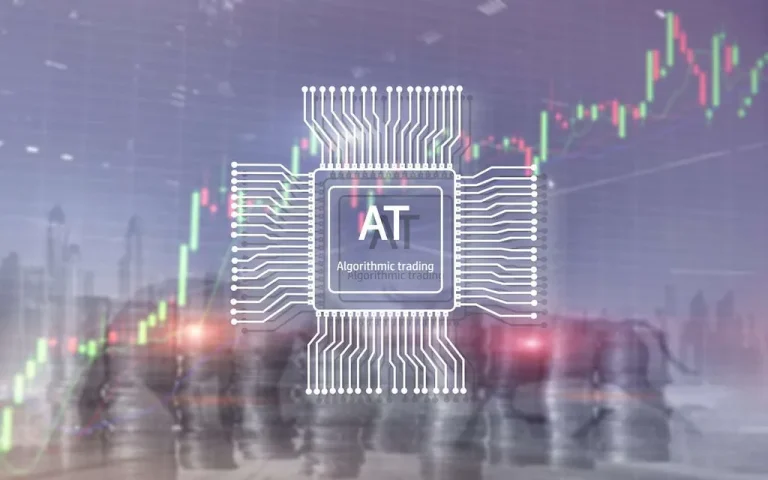Content
As we’ve seen, each approach has its merits and pitfalls, and the right choice often depends on your knowledge and comfort with the technology, desired level of control, Cryptocurrency and risk tolerance. With the overarching theme of decentralization driving the world of digital assets, non-custodial solutions resonate deeply with the ethos of cryptocurrency. Yet, as with all powerful tools, they come with significant responsibilities.

Managing your crypto and exploring different types of wallets
A custodial wallet service (like Coinbase or Kraken) holds on to the private key, so it is responsible for safeguarding a user’s funds. A non-custodial wallet (also known as a self-custody wallet) on the other hand, gives users full control over their private key, and with it sole responsibility for protecting their holdings. With custodial wallets, third parties hold your cryptocurrency and with non-custodial wallets, you hold them yourself. In general, difference between non custodial wallets vs custodial wallets while non-custodial wallets offer users greater control and privacy over their cryptocurrency holdings, they require careful management and diligence to mitigate risks effectively. Users should weigh the pros and disadvantages of non-custodial wallets against their individual preferences and risk tolerance levels. Both types have pros and cons, so the final choice of non custodial vs custodial wallets will depend on your requirements.
- Coinbase, the largest cryptocurrency exchange in the United States, is a top crypto stock to follow.
- It offers low fees, high security, and a custodial wallet for secure storage of digital assets.
- Before choosing between custodial and self-custodial wallets, you need to know how the two options differ in key management.
- With increasing data breaches and security lapses, users prioritize wallets offering ownership over their funds.
Notable non-custodial wallet providers
Custodial wallets are generally preferred by newcomers and those who value the set-and-forget https://www.xcritical.com/ nature of managing their crypto through an exchange or other centralized wallet provider. Non-custodial wallets are for those users who want to exert more control over who has access to their funds. There are pros and cons for both types of wallets, so weigh your comfort level with the features that matter most to you before deciding.

Pros and cons of non-custodial wallets
In addition, non-custodial transactions tend to be faster as you don’t have to wait for withdrawal approval. Finally, without a custodian, you don’t incur extra custodial fees, which may be costly depending on the service provider you choose. As discussed, the major downside of custodial wallets is that you have to trust your funds and private keys to a third party. In most cases, these service providers will also require identity verification (KYC).

Most exchanges’ interfaces are designed so users never even have to directly interact with their wallets. This user-friendliness means custodial wallets are generally preferred by newcomers, to whom the convenience factor of not having to manage their private key themselves is a big benefit. The best examples of custodial services are well-known centralized exchanges we all use, like Coinbase or Binance. When you deposit your crypto into your exchange account, the exchange holds the funds for you, making it a custodial solution.
While “being your own bank” brings a lot of benefits, it can be inconvenient and even risky for less experienced users. If your private keys get compromised or lost, you will lose access to your crypto assets permanently. Blockchain analysis reports suggest that over 3 million BTC might be lost forever.
The set of advantages and disadvantages have the choice ultimately depends on the needs and priorities of the user. In non-custodial wallets, maximum security depends on the user, as the private keys remain unshared with any third party. Instead, there is no return if the owner loses the primary key or recovery phrases. Many custodial wallets provide additional services like exchange, staking, and swapping options. Consequently, rather than juggling various platforms, users can perform all their tasks in one interface, making the custodian wallet an all-inclusive solution. Going ahead with the features, if the access is lost on a custodial wallet platform, it is easily recoverable with some verification steps, just like resetting a password.
The swissmoney is a versatile solution for holding and spending crypto and fiat currencies. Unlike some exchanges, swissmoney is a FINMA-licensed platform developed by Swiss experts. In this guide, we break down the different elements you should consider when choosing one.
You should also have figured out how to keep the seed phrase and private keys and make sure you never reveal them to others. A cold wallet keeps your coins in cold storage, which means your coins are offline and no one can access them. Cold wallets are therefore far preferable, if you are already working with non-custodial wallets.
A crypto wallet is an essential tool that enables you to store, manage, and interact with your cryptocurrencies. A crypto wallet functions similarly to a traditional wallet, but in a digital realm. Crypto wallets are essential for anyone engaging in cryptocurrency transactions. A non-custodial wallet, or self-custody wallet, is where the crypto owner is fully responsible for managing their own funds. The user has full control of their crypto holdings, manages their own private key, and handles transactions themselves.
Blockchain technology has gained attention from ordinary investors, business leaders, and developers. These innovators are researching how to integrate these wallets seamlessly into their ecosystem to provide a novel approach that is much better than conventional financial systems. Blockchain users can buy crypto on MoonPay with their credit/debit cards, Apple Pay, Google Pay, bank transfer, and other local payment methods. This identifier is used for derivation of the asset wallets in a specific vault account. Coinbase, the largest cryptocurrency exchange in the United States, is a top crypto stock to follow.
In the case of a custodial wallet, the exchange you choose to create the wallet has complete access to the private keys. As a result, a third party controls your crypto assets stored in the wallet. With non-custodial wallets, a crypto user has complete control over their private key, along with their funds. Non-custodial wallets tend to be a bit more technically complex than custodial wallets, so they’re generally more favored by experienced crypto users. However, the management of assets in such a wallet is carried out personally by their holder. The user himself stores public and private keys and enters them during each transaction.
Before using a CEX, you’ll need to sign up for an account and enter some personal information first, like your name and date of birth. Because CEXs operate in certain jurisdictions, they may or may not be licensed to serve you. Many CEXs will check your IP address to confirm you’re located in an area they can operate in. Get the basics of how cryptocurrencies are taxed and what it means for you. Building bridges between experts, who deliver outstanding solutions, and companies willing to implement modern technologies to grow their business. In an industry where being first to market is critical, speed is essential.
When you store crypto assets in a custodial crypto wallet, you’re trusting that company (like Coinbase, Gemini, or Binance, for example) to keep your private keys—and, thus, your crypto—safe. The recent collapse of FTX illustrates exactly how a centralized exchange can quickly be destroyed, leaving users without access to their assets. A non-custodial crypto wallet is a wallet where only the holder possesses and controls the private keys.
With low trading fees, this crypto wallet is an affordable choice for swapping cryptocurrencies. When it comes to crypto wallets, the two main options are custodial and non-custodial (aka “self-custody”). In this primer, we’ll discuss the pros and cons of each type, and explain how to set up a self-custody crypto wallet. In a recent study, 72% of crypto users preferred a non-custodial wallet for its safety, signifying an increasing acceptance of decentralized solutions. With increasing data breaches and security lapses, users prioritize wallets offering ownership over their funds. Users can request access in case of forgotten credentials; that is a good option for the beginner-friendly.

